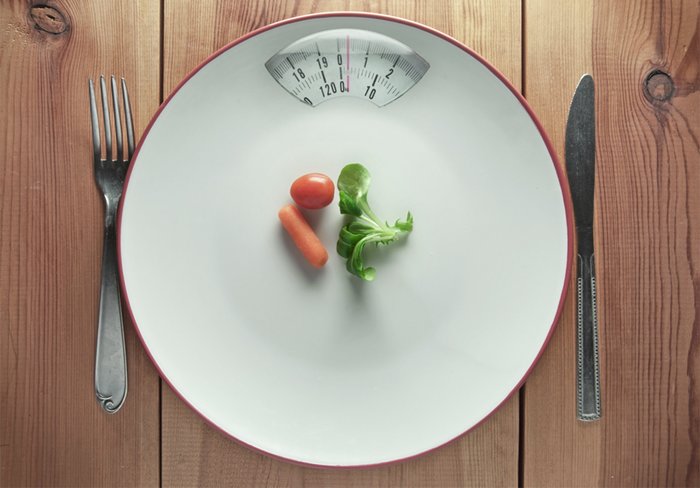It's estimated that 45 million Americans go on a diet each year.[2] Given the current rates of obesity in this country, we can clearly see the success rate is low.
So, we want you to ditch the word "diet" entirely. Not only does that word have negative connotations, it also usually means you're only doing it for a short period of time, often focusing primarily on cutting calories as low as possible.
"This makes nutritionists like us want to shout from the rooftops that severe caloric restriction—aka dieting—is not the answer," explains registered dietician Susan Hewlings, Ph.D., in Bodybuilding.com's Foundations of Fitness Nutrition course. "Yes, cutting calories leads to weight loss. Plenty of diets cut calories seriously low, at least at first, and they get results. But not forever."
Once you stop getting those short-term results, continuing to undereat can leave you feeling awful, dragging through (or skipping) workouts, and setting yourself up for disappointment.

You need a more strategic approach than just "eat less." And it starts with how you think. Instead of thinking of food as something to limit, think of the food you put in your body as fuel for the healthy lifestyle that you're building!
For many people, the changes needed to get there aren't as big as they think, Hewlings says. You might get great results from simply:
- Replacing your usual high-calorie or sugary drink with zero-calorie liquids, or cutting back on the amount you drink.
- Creating a plan for the one "problem meal" each day where you are most likely to overeat or eat fast food rather than food packed with nutrients, like low-fat protein or whole grains.
"Maybe lunch is your weak spot because you leave the house in a rush and don't pack one, or because your workmates like to eat out. Maybe it's dinner, because you haven't eaten anything all day and you come home exhausted. Maybe breakfast is a sugar-bomb, and has been since you were a kid," Hewlings explains. "No matter which meal is the biggest problem, fixing it—and just it—can be a huge win. What's better, it requires far less work on your part than trying to fix every meal all at once. In many cases, it's as simple as prioritizing protein in a meal that was otherwise going to be empty calories."
Speaking of calories: yes, they definitely matter when your goal is to lose weight! But before you start cutting them, start by establishing where you're at right now, and simply tracking the way you eat now. Even if you just do it for a brief period of time, it can be a game-changer for the long term, explains registered dietician Paul Salter in the article "Want to Lose Fat? Before You Change a Single Thing, Do This."

Tracking your nutrition, Salter says, can help in a number of ways, including:
- Helping you see portions as decisions, not just something that gets served to you
- Revealing the "hidden calories" in your diet that you may not have seen otherwise
For some people, simply having that info is enough to make a meaningful change. But for many others, it can be helpful to compare it to a science-backed calorie recommendation, like you'll find in Bodybuilding.com's free calorie intake calculator.
That calculator will help you estimate how many calories you're burning during the day, both through normal body functions and other activities and exercise. Then, it'll give you a target caloric intake to aim for.
Why bother with numbers at all? Because many of us overestimate, underestimate, or flat-out lie about how much we weigh or exercise—even if we don't realize we're doing it. And even if you're honest with the calculator, it still doesn't mean the number will be 100 percent accurate! In fact, we can pretty much guarantee that it isn't. But it's a good place to start.
Once you've established your daily caloric target, keep tracking it to determine if you need to adjust your calorie intake slightly—not too much!—because you're not losing body fat.


